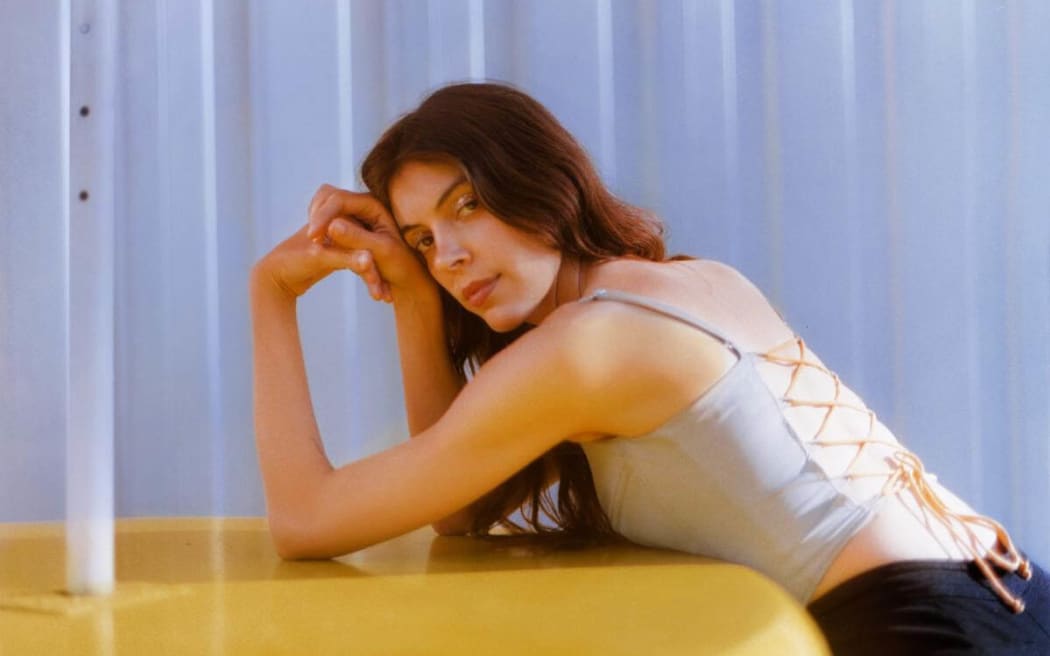
Photo: Tonje Thilesen
Julie Byrne’s 2017 debut Not Even Happiness was greeted with an avalanche of acclaim, her haunting voice paired with sparse acoustic plucking, to frequently spine-tingling effect. Tragedy struck during the creation of its follow-up, when her longtime collaborator Eric Litmann died suddenly.
Byrne began working again with Alex Somers, known for his production on Icelandic band Sigur Ros’ albums, and the pairing proved to be a great fit. Her second album The Greater Wings drew numerous plaudits, and found its way onto many 2023 Best Of lists.
Byrne's guitar playing is still at the heart of the record, but it’s surrounded by washes of synth and expansive string and harp arrangements. The songs sound vast, while remaining intimate.
When asked if a larger sense of scope was part of the idea going into recording, she says, “I’m not a purist. I’m not here to be faithful to what I’ve always done. I want to grow, and be brave as an artist, but also be very much open to the signatures of the collaborators I’m working with.
“Collaboration as they say can be ‘the third mind’, and it brings ideas and trajectories into view that may have been completely unseen otherwise.
“Really I would say the widening of scope on this record is also an expression of the relationships themselves, and how we were approaching these songs when we were in the room together, facing challenges and questions, and trying to find remedies in the recording process.
“None of it was pre-conceived. You know when it’s right, even if the solution is something that you had never considered before.”
The album’s title evokes images of flying, or the afterlife, but its inspiration came from more earthly concerns. As Byrne tells it, “My friend was training for a degree in massage therapy at the time. She was transitioning from working in bioinformatics, studying the human biome, to becoming a bodyworker, and she was practising on me.
“We had met in Paris - I was playing a show there, and she flew out for her birthday. It was a late night we were having at the apartment she was staying in. She was working on my shoulders, and my neck, and then traced around the back of my ears, until she made her way to my temples.
“When she touched my temples she told me she was touching the edges of ‘the greater wings’. As she described the sphenoid bone, I became transfixed. She said that in much of the anatomical literature she’d read it was described in uniquely poetic and mystical terms, as if there was no way to strip it of its beauty for the sake of practical information.
“She said that it’s often likened to a butterfly, or an otherworldly moth. It’s composed of two lesser wings, and two greater wings, and the centre of the bone is what holds the pituitary gland.
“I had written that phrase in my notebook at the time, not knowing what it would become, and then years later it became the only title I could imagine for the record.”
Byrne grew up hearing her father play guitar, and was inspired to learn the instrument herself. Asked if she inherited his acoustic, she says, “I’m looking at it right now.
“It’s like a limb. I can’t imagine if I would ever have to be separated from it. It’s definitely my most prized possession, and it’s been with me most shows that I’ve ever played in my life.
“He bought it because he started playing weddings, and eventually it ended up in my possession. It’s the guitar that’s captured on all the recordings of our work.”

